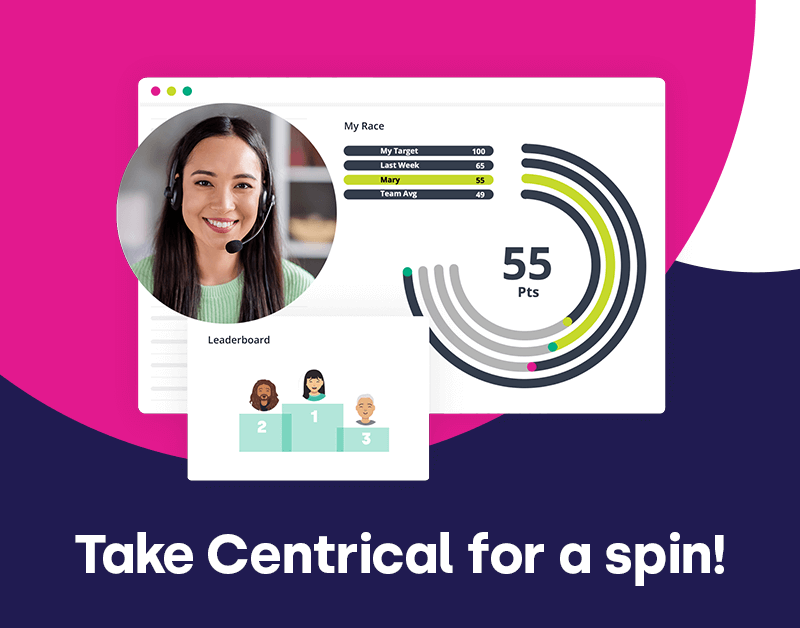6 Things to Know about Digital Transformation & HR
Digital transformation is the much praised disruptor in many industries — from transportation right through to hotels. In the HR and learning spaces it is expected to result in friendlier, self-service HR platforms and applications. However, the transformation of HR will be much more than that, disrupting a lot of the essence of the work of the HR and learning practitioner.
This article suggests that done properly, digital transformation offers HR an exclusive opportunity to meaningfully impact employee happiness, engagement, and organizational culture — it could even be the source of an organization’s growth and capacity to be truly exceptional.
For HR, digital transformation doesn’t just imply “digitally” doing HR tasks. It carries the potential of a new discourse about employee learning, satisfaction, and performance. Nurturing this discourse can be transformational for the entire organization, for the role of HR, and have a profound influence on culture and even well-being at the company.
This is much more than streamlining training, benefits, recruitment, or performance. To understand it, let’s look at the employee’s “inner work life” — the core of the employee experience — as defined by Professor Amabile in her pioneering book.
What is inner work life? Here’s a definition by the book’s authors:
“the dynamic interplay among personal perceptions, ranging from immediate impressions to more fully developed theories about what is happening and what it means; emotions, whether sharply defined reactions (such as elation over a particular success or anger over a particular obstacle) or more general feeling states, like good and bad moods; and motivation—your grasp of what needs to be done and your drive to do it at any given moment. Inner work life is crucial to a person’s experience of the workday but for the most part is imperceptible to others. Indeed, it goes largely unexamined even by the individual experiencing it.”
In other words, employees are compelled by how they experience work at an individual level and their relationships with colleagues and managers. This is really what drives their motivation at work.
We believe that implemented properly, new HR software together with the digital disruption can truly alter employees’ inner work lives and influence them for the better. This radical scope of HR disruption is fascinating – let’s examine it with 6 areas where HR’s digital transformation will likely pack the most punch:
1. HR Systems Consumerization
Smartphones are the core of digital transformation as, through them, we can access super, slick, well-designed consumer apps that deliver a great user experience that is fine-tuned for user adoption.
According to Bersin by Deloitte, this consumerization trend is converting HR into a system of engagement that can reach beyond the territory of HR and really engage employees’ inner work lives, rather than being just one of record (certifications, training etc.)
According to Bersin by Deloitte, this consumerization trend is converting HR into a system of engagement that can reach beyond the territory of HR and really engage employees’ inner work lives, rather than being just one of record (certifications, training etc.)
This intrinsic feature – and the enormously gratifying UX it delivers – is the driver of HR software once digital transformation happens. ELearning and the older classroom-based employee training need to get their act together in a world of widely-available online learning opportunities and Lynda.com. Moreover, the expectations of employees’ of HR software and learning have changed as has the way in which their bosses manage performance and target-setting. The result is that HR is being forced to drastically alter its game – to make it consumer grade. Suddenly staid platforms get a radical re-design. This can bring about massive employee engagement — engagement where learning can effortlessly become 85% instead of a meagre 20%.
2. The Digital Employee/Manager Discourse
In order to combine the consumerization of digital transformation, employees’ inner work lives, and HR, we need to make sure that there is an ongoing digital dialogue between managers and employees.
The days where digital transformation revolved around tedious performance management reviews that took tonnes of management hours, were lumped with forced rankings, and resulted in apprehensive conversations with employees, are over. Now, digital transformation means weekly check-ins enabled by management and instantaneous goal-setting where objectives are changed to sync with actual needs in real-time. It can mean tethering efficiency apps to the discourse or using gamification solutions that display targets in real-time. It can also mean tying all these components into tweaked social communication that supports the incentive through social proof.
This can bring about much better work lives, as it forces discourse between employees and managers, recognition, and feedback. The capacity to confront these issues has a momentous effect on employees’ engagement with work and their inner work lives, leading to engagement and motivation.
3. Learning Transformation
Learning is shifting from classroom-based delivery to mobile-first, on-demand learning and the consumerization of HR is particularly notable here. Content is converted from hour-long lecture components into bite-sized sections of micro-learning. This quickly alters learning into something used on-the-job and on-the-go. Gamification can take taking these micro-learning sections and guarantee employee engagement as well as knowledge retention. How? Game elements are able to pace learning, repeat it, and drive accomplishment by tying into how our minds work.
4. Effect on Establishing Targets
The digital discourse also covers establishing targets, which today are usually set yearly or every three-months as part of the performance review procedure. This generates a harmful link between the discourse about performance and the discussion of compensation. Often, goals become old and immaterial. Disconnecting the discussion about compensation from one about performance and openly and steadily sharing S.M.A.R.T goals, distributing them to employees, and sharing them with coworkers, nurtures a more transparent work environment and a more unified and aligned team of players. This can even help managers improve. For the long-term, since digital communications will swap certain spoken and individual supervision, it will hopefully simplify and improve how employee performance is managed.
The resulting perception of fairness and transparency (I know what my goals are, I know what my boss’s are, I know I am being evaluated fairly) can do wonders on inner work lives. Using similar goal setting for managers (even using a gamification platform) – such as giving feedback to employees, engaging with them, discussing targets – can radically improve inner work lives.
5. The importance of feedback
Digital transformation also extends to receiving the reactions and feedback from staff. It may be weekly Q&A sessions between managers and employees where answers are gathered and then analyzed using analytics solutions or a daily check-in with employees via a mobile app to gauge fulfilment, concerns, etc.
In many gamification platforms, feedback is giving (through goal setting and benchmarks) on performance, in real time, letting employees apply self-correction when needed.
6. Analytics
Clearly, all of the above can be intensely analyzed, bestowing HR professionals and managers with instant, actionable understandings and insights.
Bottom Line
Digital transformation will most certainly — and imminently — change the workplace by bringing about daily interaction between managers and employees, providing them with feedback, learning, recognition, work objectives, and a social and emotional connection. HR and learning professionals must embrace this change and meaningfully impact employee engagement as well as the culture within the workplace.
Engage and motivate your frontline teams
Improve performance with an AI-powered digital coach
Deliver world class CX with dynamic, actionable quality evaluations
Boost performance with personalized, actionable goals
Nurture employee success with the power of AI
Listen and respond to your frontline, continuously
Drive productivity with performance-driven learning that sticks
Drive agent efficiency, deliver client results
Keep tech teams motivated and proficient on products and services while exceeding targets
Maintain compliance while building customer happiness and loyalty
Enlighten energy teams to boost engagement
Engage, develop, and retain your agents while driving better CX
Improve the employee experience for your reservations and service desk agents



 Dalit Sadeh
Dalit Sadeh April Crichlow
April Crichlow Ella Davidson
Ella Davidson Linat Mart
Linat Mart Gal Rimon
Gal Rimon Jayme Smithers
Jayme Smithers Doron Neumann
Doron Neumann Daphne Saragosti
Daphne Saragosti Ronen Botzer
Ronen Botzer Ariel Herman
Ariel Herman